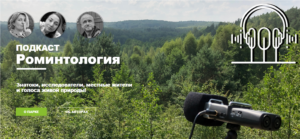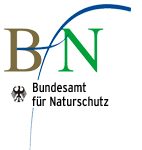Activation of local inhabitants as stakeholders of the proposed Vishtynets Biosphere Reserve (Kaliningrad Region, Russia)
The Vishtynets Nature Park in the Kaliningrad region (Russia) comprises one of the largest uncut lowland forests in Central Europe. The extensive forest landscape (also known as Rominten Forest) is embedded in the hilly landscape of the same name. The area’s special features include its high biological diversity, exceptional natural monuments, special relief and a still unspoiled environment. The nature park is in charge of protection and restoration of the natural potential of the forest ecosystems, in addition it also serves educational, recreational and research purposes. The promotion of adapted, sustainable forms of use was not an explicit goal when the nature park was founded in 2011. This is reflected, among others, in the current zoning of the nature park, which includes neither settlements nor the open hilly country surrounding the forest characterized by fields and meadows that are increasingly (intensively) used for agriculture. Tourist offers are marginally available and can be developed, as this remote, quiet and, for Kaliningrad, unique forest landscape enjoys increasing popularity.
In October 2018, the Ministry of Environment of the Kaliningrad Region and the Vishtynets Nature Park started preparations for the nomination of a biosphere reserve based on the existing Vishtynets Regional Nature Park. The Michael Succow Foundation supports the preparation of the application with professional expertise, as described in the project description ‘Romincka Forest‘. Parallel to this, ZENAT accompanies the participation process and promotes measures to involve the local population and external communication. Together with the Vishtynets Nature Park, information events have been organized and the foundation of a citizens’ advisory board was initiated, a citizen survey has been carried out and the use of social media for the integration and information of citizens of the Vishtynets region was launched. In addition, actors and inhabitants had and have the opportunity to participate in thematic study trips to existing biosphere reserves in Germany.
With the completion of the project in February 2021, the project team designed folding flyers as well as tear-off pads which were handed out to the stakeholders in the region. Among them: the administration of the Vystit Nature Park, the natural history museum in Krasnolesye, tourism information offices in Gusev, Chernyakhovsk and Kaliningrad, as well as about ten accommodation facilities in the immediate vicinity of the Rominter Heide. The print materials were not only intended to inform visitors about the unique offers of the region, but also to strengthen the cooperation between the nature conservation administration and the regional economic actors. At the same time, potentials were highlighted that could be further strengthened with a nomination of the area as a UNESCO biosphere reserve.

Project period: 04/2019 – 02/2021
Project lead: Prof. Dr. Hartmut Rein
Project coordination: Judith Kloiber
Cooperation partner: Administration of the Vishtynets Nature Park, Ministry of Environment of the Kaliningrad Region, Russia; Michael Succow Foundation
Project results (selection):
Film about the planned biosphere area: Rominter Heide from a bird’s eye view
Podcast: “Romintology”. Connoisseurs, researchers, locals and voices of wild animals!
Financed by:
Federal Agency for Nature Conservation (BfN) 
with funds from the
 Federal Ministry for the Environment, Nature Conservation and Nuclear Safety (BMU)
Federal Ministry for the Environment, Nature Conservation and Nuclear Safety (BMU)